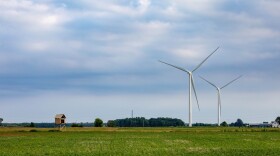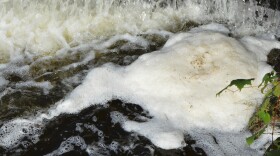-
An order issued earlier this week is the fourth time the U.S. Energy Department has extended operations of Consumers Energy's J.H. Campbell power plant in Ottawa County.
-
Given dramatic changes in federal energy policy and spending, as well as possible reduction in state financial support for alternative energy projects, is Michigan still on target to reach its clean energy goals?
-
Melting snow over the weekend across the Lower Peninsula released trapped pollutants into the air, triggering statewide air quality alerts.
-
In 1994, U.S. Geological Service researchers planted 4,200 seeds of the Pitcher’s thistle, a rare wildflower that grows only on the sandy dunes of Lakes Michigan, Superior and Huron. Now the restored populations are thriving and spreading, an unexpected success story.
-
The EPA reversed federal policy on greenhouse gas emissions Thursday. Some Michigan officials say that throws state rules into question.
-
Environmental advocates say the outlined revision ignores science and threatens water quality, while farm groups argue it offers landowners needed clarity about which parts of their land count as federally protected.
-
Environmental advocates says eyes are on Whitmer as the state mulls another permit for the project.
-
The goal of a proposed seasonal sea lamprey barrier is to restrict the invasive species' spread up the Sucker River in Alger County. Officials are taking public feedback until February 22.
-
A study in the Journal of Great Lakes Research used preserved whole lake trout and walleye samples to measure the accumulation of so-called "forever chemicals" in fish from 1975 to 2020.
-
Scientists in the middle of the country told Harvest Public Media that 2025 was a year of major changes and uncertainty.
Play Live Radio
Next Up:
0:00
0:00
Available On Air Stations










